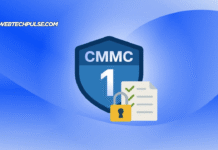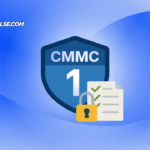Depression affects millions of people nationwide, and the numbers continue to grow year after year. Why is the depression rate so high? Many factors contribute to higher instances of depression, particularly in western countries, such as work-related stress, social pressure, failure to maintain a robust support network, intense schooling expectations, and personal relationship problems, to name a few.
Traditional methods for treating depression include talk therapy, mindfulness, meditation, medication, wellness monitoring, journaling, and other standard methods.
For many, these kinds of treatments have been underutilized, partly due to lack of access to professional care and partly due to the stigma surrounding mental illness. Those who are living with depression may avoid seeking assistance for fear of judgment. If you’re unsure if you’re living with depression, visit Mind Diagnostics to explore more information on depression.
That’s where tech comes in. The technological revolution has brought many beautiful things into our lives, and maybe some not so wonderful, too. But, where it can help tremendously is in the area of mental health assistance. It does not replace in-person therapy or medical treatment administered by a health professional, but it can augment existing services more conveniently.
Online Counseling
One of the most significant developments coming out of online services these days is virtual counseling. Using an online platform to deliver professional mental health services has opened the door to treatment that was shut to so many before due to stigma, access, or affordability.
Online counseling provides a way for clients to connect with therapists while bypassing all of the traditional obstacles such as high cost, distance, or lack of convenience that have stood in the way. People can connect with counselors online via chat, audio call, or video session to address depression, anxiety, stress, relationship issues, interpersonal conflict, addiction, and a whole host of other subject areas.
Health Monitoring Apps
It seems like nowadays there’s an app for everything, some more necessary than others. One type of app that medical practitioners and healthcare providers have grabbed hold of is the health monitoring apps.
Whether it’s tracking blood glucose levels for diabetes, tracking mood and physical symptoms for mental illness treatment, or remotely monitoring heart function, health apps have significantly contributed to providing increased information on patient health with faster turnaround time and significant convenience.
For people managing their depression, health and wellness apps allow them to keep tabs on their eating habits, exercise habits, sleeping habits, mood throughout the day, and many days, which may give indicators to them or their health providers as to how their overall health impacts the symptoms of the depression.
Smart Devices
Smart devices, and smartwatches, in particular, have taken the pain out of monitoring one’s own daily health and wellness. These devices automatically record pulse rate or temperature, record fitness indicators, and hours of sleep achieved nightly. All automatically recorded data can be transmitted to a central repository for the wearer’s personal use or for a professional to keep tabs on their client’s health.
These devices are helpful for many people living with depression because they monitor physical symptoms and wellness indicators that can have a significant impact on how individuals feel emotionally.
Fitness Apps
Whether it’s as mild as a walk or intense as a 45-minute workout session, physical activity can have a considerable impact on the intensity of depression symptoms for many individuals. Fitness apps can assist in keeping individuals motivated to move while recording their progress as they establish new healthy habits.
Mindfulness and Meditation Apps
Practicing mindfulness and meditation are a couple of the many approaches to assisting individuals living with depression. Various mindfulness and meditation apps are on the market today, each with its take on these practices.
Marie Miguel Biography:

Marie Miguel has been a writing and research expert for nearly a decade, covering a variety of health- related topics. Currently, she is contributing to the expansion and growth of a free online mental health resource with Mind-Diagnostics.org. With an interest and dedication to addressing stigmas associated with mental health, she continues to specifically target subjects related to anxiety and depression.












